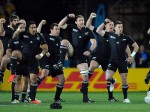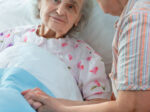 Everyone has their own pet theories about the quickest way to lose unwanted weight.
Everyone has their own pet theories about the quickest way to lose unwanted weight.
After 40 years of working as a Dietitian, Lea Stening has heard some good stories.
Here she shares some of the common ideas offered by her patients, along with a few observations of her own.
True or False?
1.”You lose more weight if you only eat when you feel like it.”
A: False. If you graze all day your blood sugar levels will continually be fluctuating making it difficult for you to concentrate and remember things. There is also the risk that you may miss out on obtaining sufficient essential nutrients for body growth and repair. Eating randomly may also expose your teeth to a continuous supply of fermentable sugars increasing your risk of dental caries.
Research has also found that having your protein in 3-4 meals per day leads to better re-synthesis (rebuilding) of body tissue than intermittent or random eating
2. “I don’t need to drink because I seldom get thirsty”
A: False. By the time you become thirsty you can be dehydrated. Even just a 1-2% drop in hydration can reduce physical performance by as much as 20%.
It can be very easy to become distracted by work throughout the day and to forget to drink.
Fluids are essential to weight loss because they help to distribute energy, from the food we eat, to working muscles. Fluids also help us to remove waste products and to maintain our body temperature. So if you don’t drink you get tired and you put on weight.
3.“You are not losing weight unless you are hungry”…
A: To answer this we must first define hunger. Not everyone gets an empty feeling in their stomach when their blood sugar (energy levels) starts to fall. Some people instead experience sugar cravings, shaky hands, headache, loss of concentration, increased stress and agitation or even insomnia. If you are fasting or skipping meals to lose weight your metabolic rate will slow down and you will feel tired as your body tries to conserve energy .
So false..in order to lose weight easily you need to eat the right type of foods at the right times and in the right amounts to meet your nutrient and energy needs to power through your day.
Helping people to find out which foods are “right” for them depends on issues such as age, culture, gender, taste preferences,work habits, personal goals, exercise level, health concerns etc, and this is where Dietitian’s can really help people.
4.”To lose weight you need to serve your food on a smaller plate”.
A: False. It’s not the size of the plate it’s what’s on it that counts. If your small plate is full of fried foods or chips you’ll consume 2-3 times as many kilojoules as a dinner plate covered in vegetables.
Also if you try to downsize your meal you are more likely to feel deprived and so seek out higher energy snacks and lollies after dinner.
So keep your meal on your usual sized dinner plate but limit your lean, grilled meat, fish, poultry or alternative protein serve to less than a palm size (100g), make the starchy food or vegetables (e.g. potato,kumara, rice or pasta etc) fill a ¼ of the plate and the remainder fill up on bulky “free vegetables” as these contain mostly water and plant cellulose which helps your digestive system to work well with the increase in dietary fibre.
5. “My children are overweight but they hate eating vegetables so I feed them vegetable juices. Is this ok?”
A: False. Chewing helps to strengthen their teeth, jaw and gums. When you process foods you deprive your body of work and slow the digestive system down. Also the healthy bacteria that grow in the gut need dietary fibre to grow on in order to boost the immune system.
Blending or juicing foods concentrates the kilojoules and increases not only the Glycaemic Index of the food, making the energy more quickly absorbed, but also leading more rapidly to hunger.
Dietary fibre has the function of altering fat absorption so why would you want to interrupt this process if weight management was so important?
6. “You will lose more weight drinking white rather than red wine”.
A: The energy is practically the same in each:
100mls Sparkling wine 372kj/89kcals
100mls White wine 355kj/85 kcals
100mls Red wine 363kj/87kcals
So the answer is “not really”. The problem lies more in how much you drink overall.
Very few people know that 104mls = 1 standard unit of alcohol with roughly 7 units per 750ml bottle of wine.
Alcohol carries 29kj/7kcals per ml not far behind Fat which carries 37kj/9kcals/ml.
So if you are truly intent on weight loss try cutting back or just have a month dry and be amazed at your results mentally and physically.
7.”Mindfulness is the key to weight loss”
A: It does help in the long-term. Although research does show “mindfulness” helps weight loss by changing behaviour (through noticing such things as where, how, when and what you eat) this is very hard to concentrate on when your blood sugar is fluctuating sending you off on a “hunt” looking for more food all the time.
Also some essential nutrients are needed for good cognition, memory, discrimination and concept learning and it is very hard to think straight and alter behaviour if you are hungry or these essential nutrients are lacking.
So if you are keen to lose weight; or you want to alter your diet because you suffer from an allergy or intolerance; have a nutritional assessment of your current diet first, to determine if it is nutritionally adequate to meet the demands of your lifestyle, mental and physical activity.
Once this ground work has been done and corrective action taken it is then a lot easier to begin work on understanding and changing the “other cues” to your eating behaviour. Issues such as hormonal change, stress and sleep management, social and environmental triggers then become a lot easier to understand and deal with. This investigative approach also helps to reduce the chances of a relapse.
As we age our nutritional needs also change. We actually need to eat quite a lot of food in order to lose weight and still keep up with life’s challenges. Are you eating enough?
Find out by contacting us today.
For more information or articles by Lea read:
Our attitude is the key to better health
Why are NZ men getting fatter faster than women?
The support of friends aids weight loss
Could your weight be disabling you?
Community support for overweight children
Overcome misconceptions about weight for better family health































































Leave a Reply